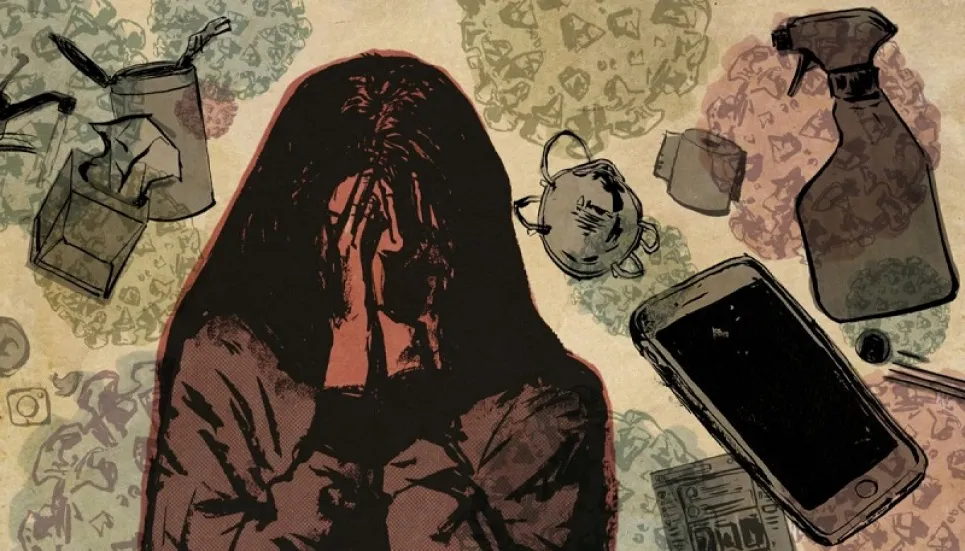
United Nations and the World Health Organization said there is a "high prevalence" of mental distress in countries across the globe due to the coronavirus pandemic, especially among health care workers and children.
"The impact of the pandemic on people's mental health is already extremely concerning," WHO Director-general Tedros Adhanom Ghebreyesus said in a news release Thursday.
During the pandemic, 47 percent of health care workers in Canada have reported a need for psychological support; 50 percent of health care workers in the People's Republic of China reported depression; and 42 percent of health care workers in Pakistan reported moderate psychological distress and 26 percent severe psychological distress, a new UN policy brief released Thursday says.
In Italy and Spain, parents have reported that while in confinement during the pandemic, 77 percent of children have had difficulty concentrating; 39 percent have restlessness and irritability; 38 percent have nervousness; and 31 percent feelings of loneliness, according to the brief.
Also, a study on young people with a history of mental health needs living in the United Kingdom found that 32 percent of them reported that the pandemic had made their mental health much worse.
Overall, the brief notes that national surveys conducted this year show that nearly half -- 45 percent -- of people in the United States have reported distress during the coronavirus pandemic.."Social isolation, fear of contagion, and loss of family members is compounded by the distress caused by loss of income and often employment," Tedros said.
"It is now crystal clear that mental health needs must be treated as a core element of our response to and recovery from the COVID-19 pandemic," Tedros said.
"This is a collective responsibility of governments and civil society, with the support of the whole United Nations System. A failure to take people's emotional well-being seriously will lead to long-term social and economic costs to society."
The brief calls for emergency mental health services and psycho-social support to be made widely available.
(Source: CNN)